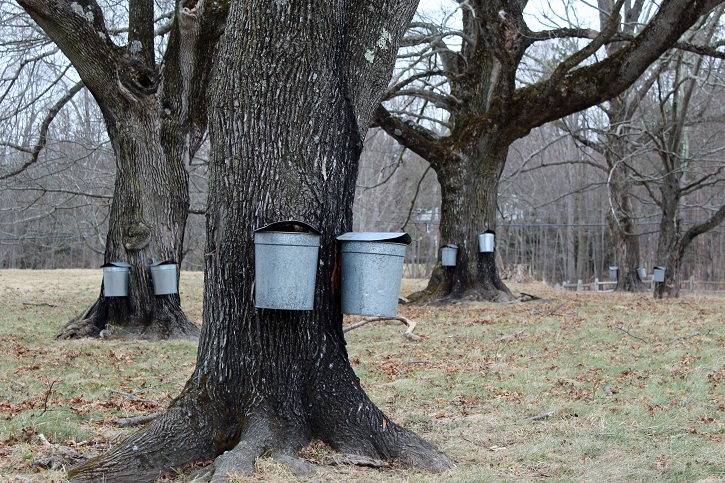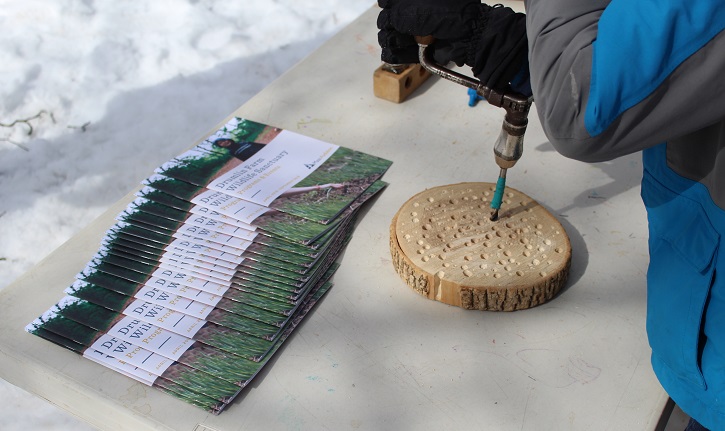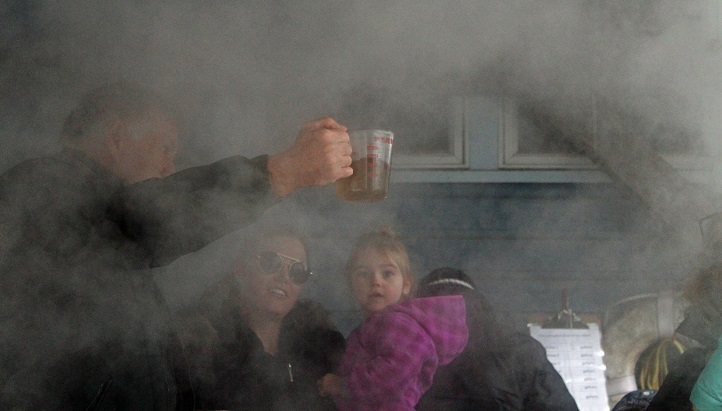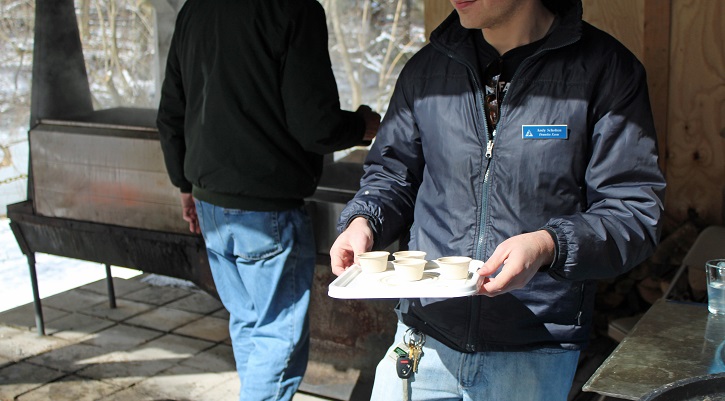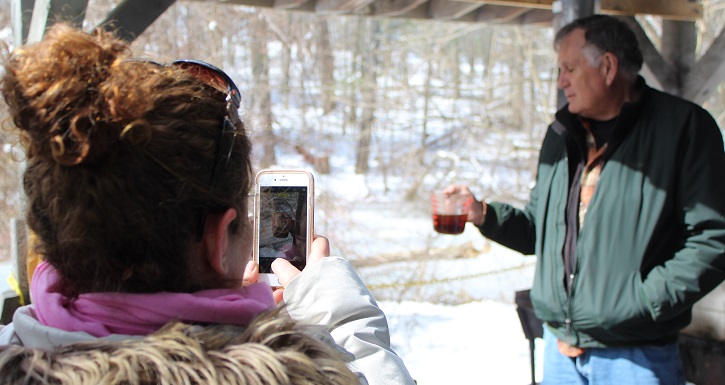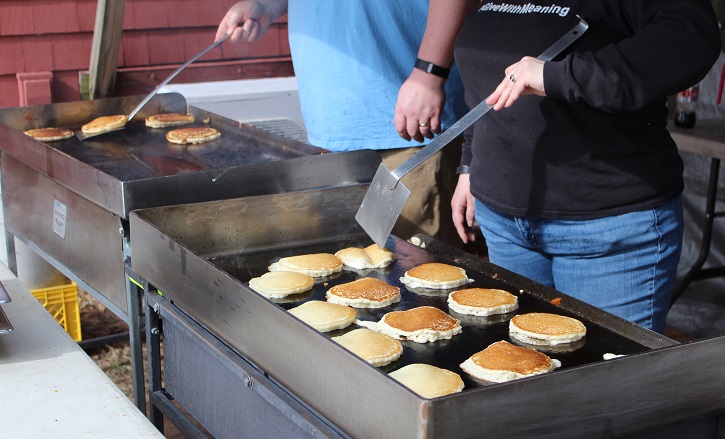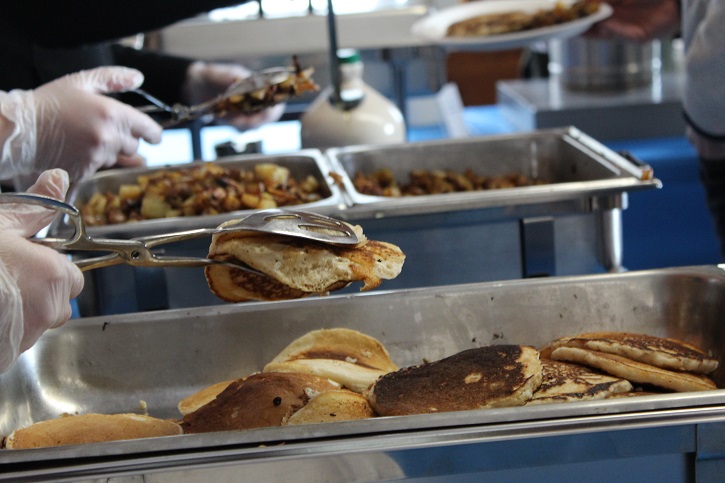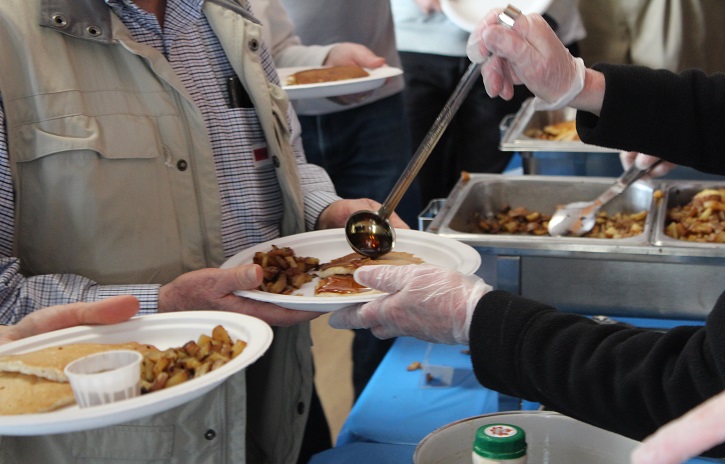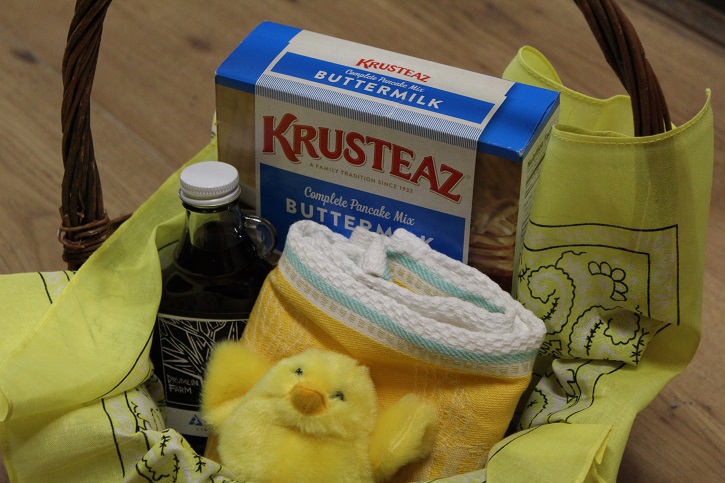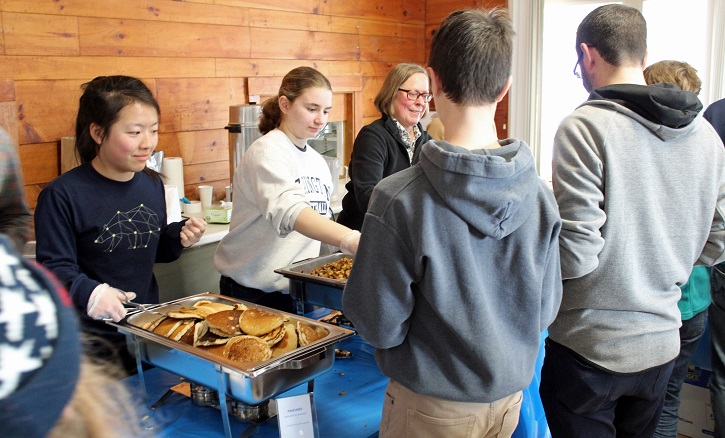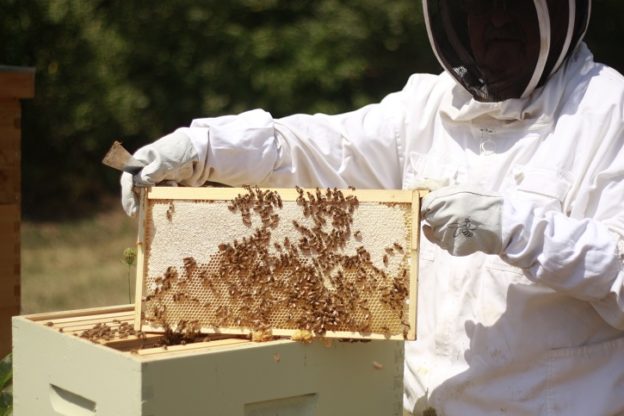While we can’t gather in person to celebrate our favorite fiber-festival of the year, we hope you can still join us virtually to learn more about the story from sheep-to-sweater, shop local fiber vendors, and enjoy some of our favorite Woolapalooza moments through the years.
In Massachusetts, sheep are raised on small family farms in flocks of varying sizes, ranging from a few ewes up to about 400 on the largest sheep farm. Sheep do well on Massachusetts land and require very little labor to produce a quality product that fits well with the New England climate. They’re also considered good for the environment and can help improve the ecosystem when managed with sustainable agriculture principles. Sheep are the perfect tool for controlling weeds and brush, helping land managers avoid mechanical and chemical means of control. They work so well that corporate and government land managers have adopted or hired flocks to help in reforested areas, watersheds, ski slopes and under power lines. You’ll often see our sheep in different fields throughout the year, doing their part to keep the pastures free of over-growth.
The Sheep-to-Sweater Process
Each year, master sheep shearer Kevin performs our shearing, removing each sheep’s wool with large hand-held shears. The wool is removed in one piece, called a fleece. Sheep are usually shorn in the spring, when they can survive without their warm coat. The fleece is then spread out and skirted, a process that removes large pieces of soiled wool, hay, etc. Each fleece weighs 8-14 pounds fresh off the sheep, and a 10-pound fleece might weigh only half that after it’s washed to remove the lanolin and soil!
After the fleece is washed, it’s then carded, which involves combing the clean, dry wool to straighten the fibers. Every wool fiber is a molecular coil-spring covered with microscopic scales. The springiness of the individual fibers can be seen in the curliness of a sheep’s fleece.
The carded wool can then be spun on a wheel, where the fibers are drawn out and twisted together to form yarn. Wool clothing is highly durable, easily dyeable, breathable and temperature regulating, resists wrinkles and retains shape, flame resistant, and naturally water repellent. It truly is an amazing fiber!
Shop Fiber Vendors
Please support our amazing local fiber vendors who annually make Woolapalooza such a special event:
- Elizabeth Stubbs Felt Artist, handmade woolen art, by Elizabeth Stubbs
- Sprightly Sparks, laser-cut curiosities, by Beth McGuire
- Alpaca-Brats Farm, unique alpaca products, by Dawn Tonkin
- Englishman Bay Trading Co., authentic wool products locally made, by Alicia Monks
- Loop by Loop Studio, rug hooking kits and supplies, by Hayley Perry
- Sheepscot Harbor Yarns, tams and hand-painted yarns, by Linda Perry
- Smiley Baby Hats, handmade knit hats, by Erica Smiley
Our Favorite Woolapalooza Moments

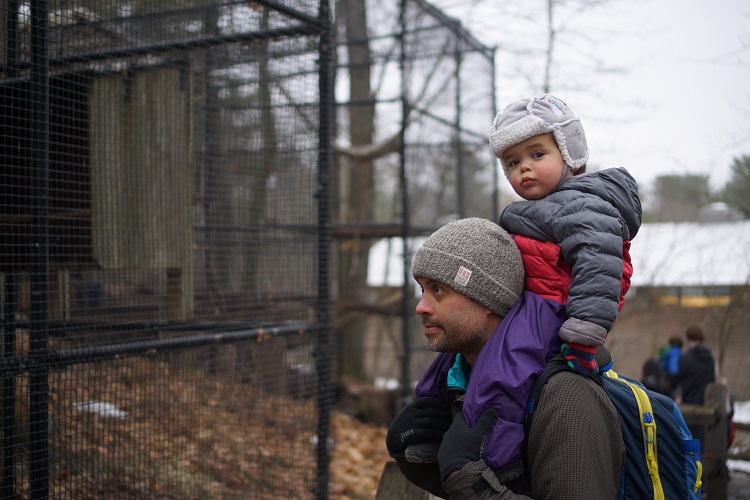













Wool Crafts at Home
Get hands-on with wool and learn something new! Try out these step-by-step tutorials on wool-based crafts:
- How to Knit
- How to Crochet
- How to Needle Felt
- How to Weave
Lambing & Kidding Updates

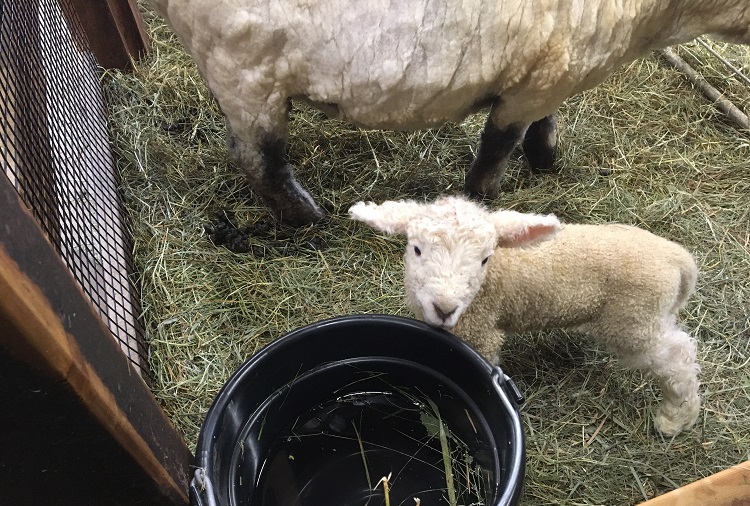
As lambing and kidding season begins, so far we have had two baby goats and one lamb arrive on the farm. Like and follow our Facebook and Instagram pages for more updates as the season progresses!


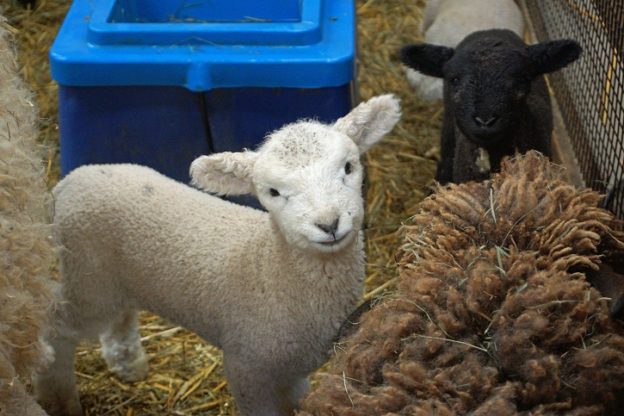
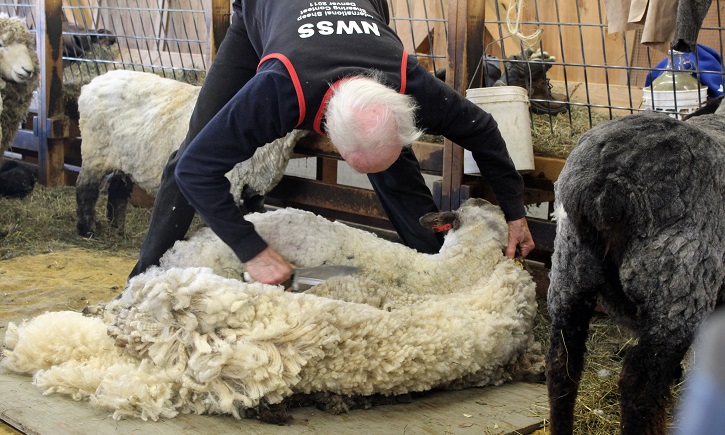
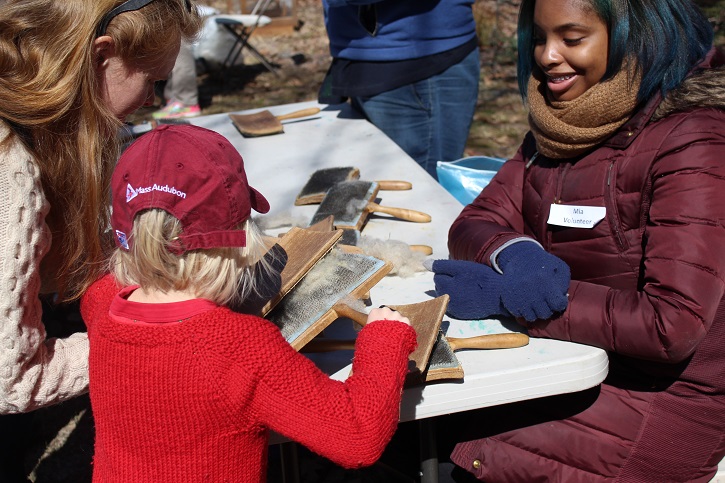
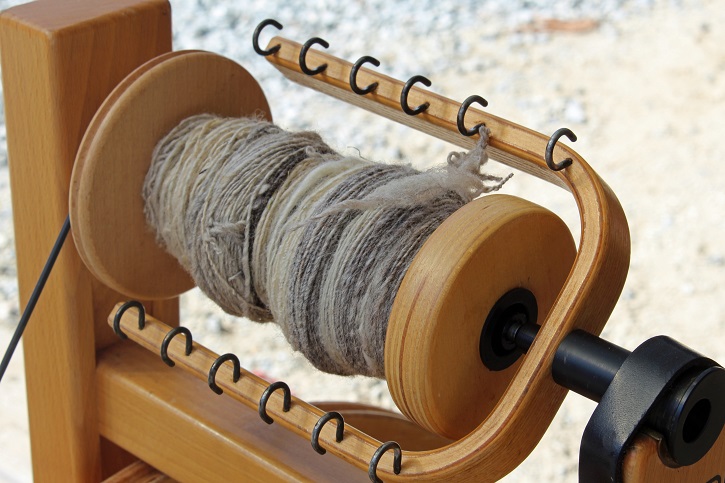



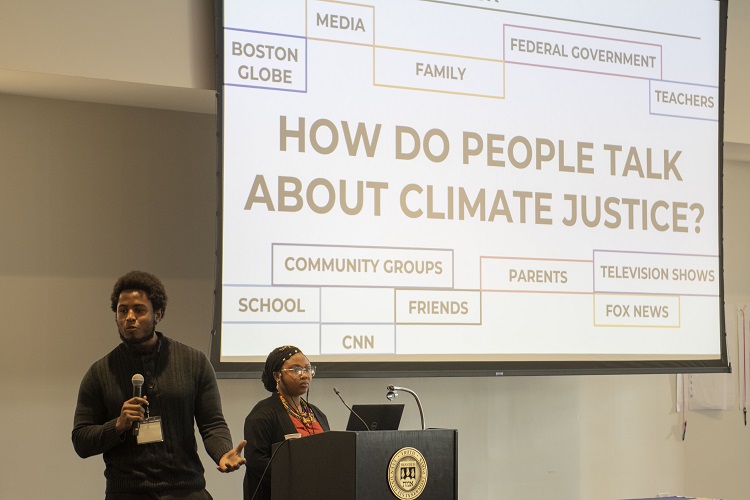


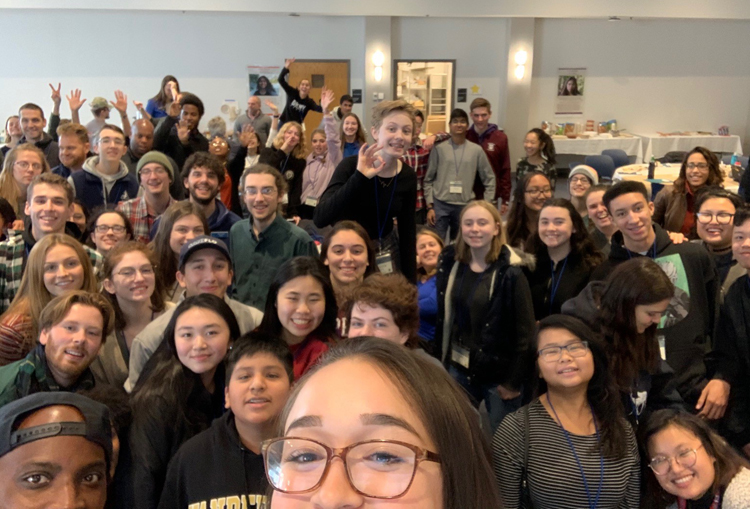
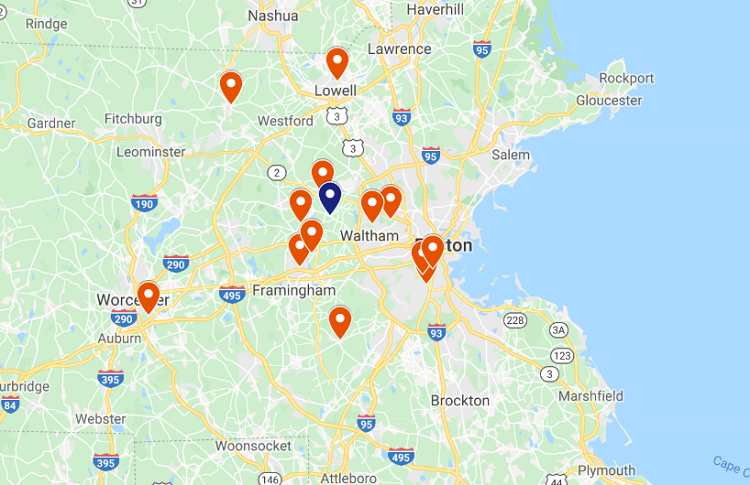
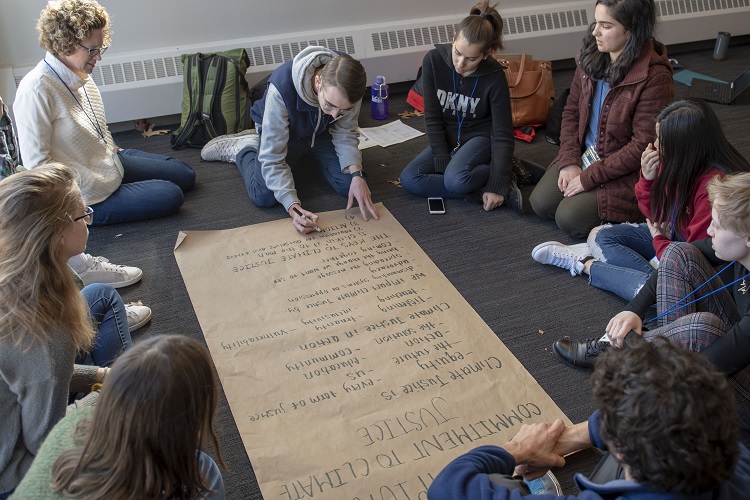
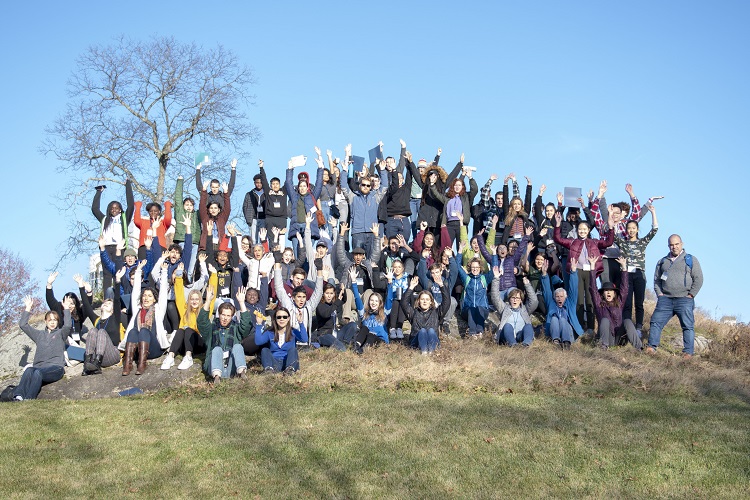
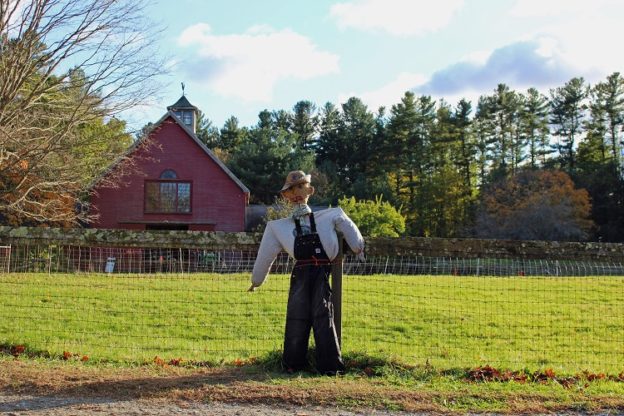
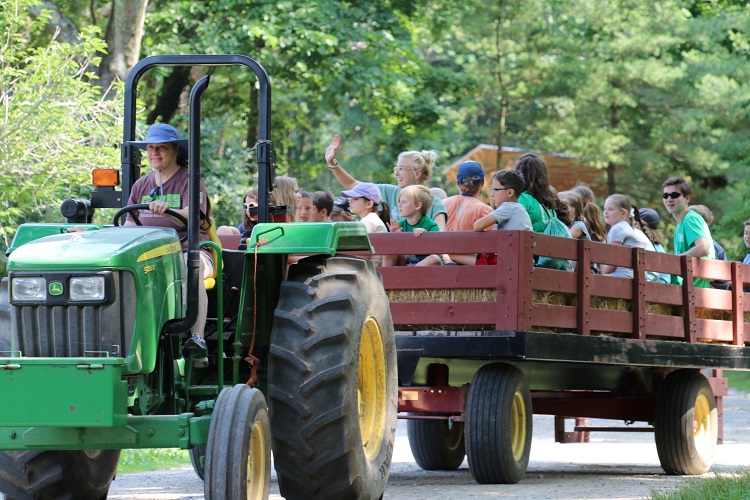
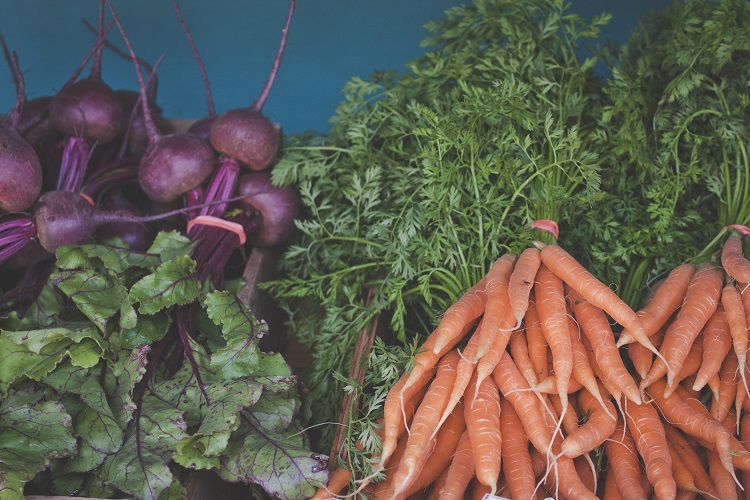


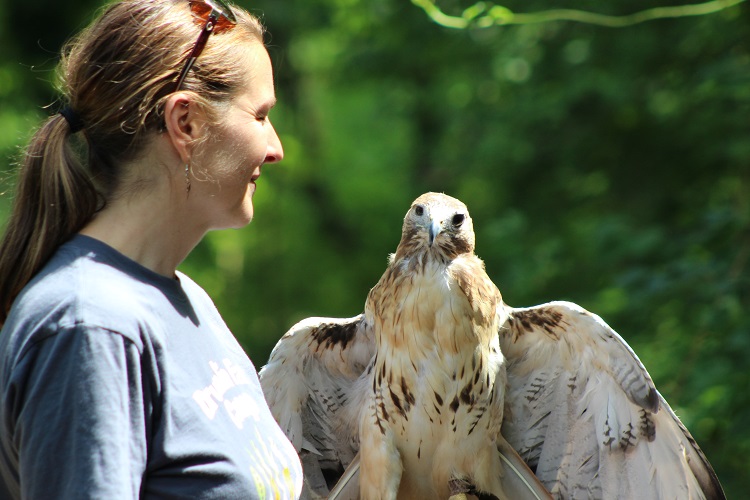
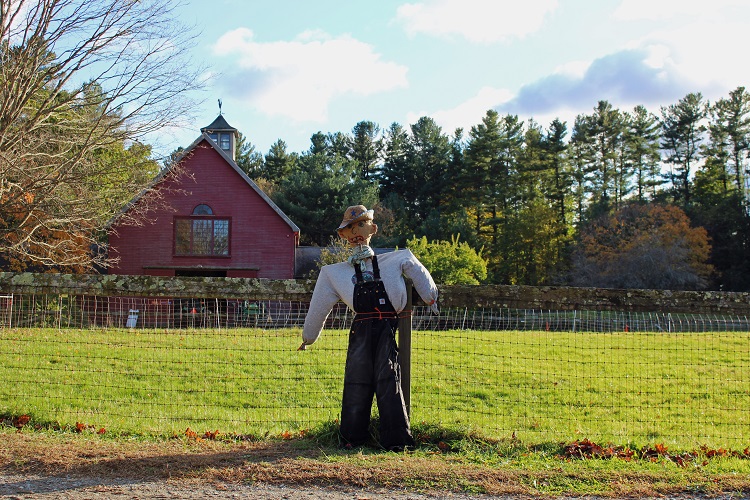
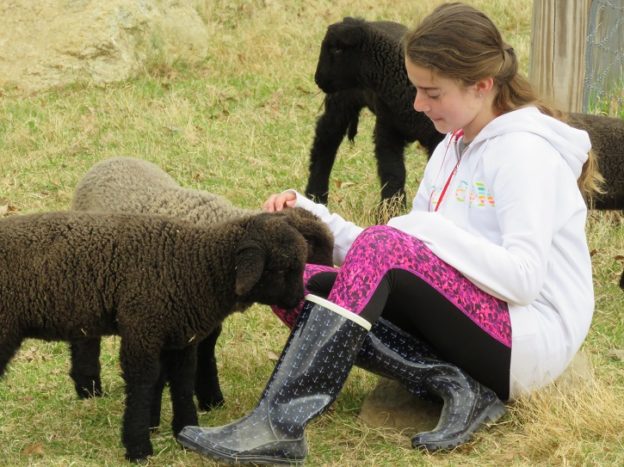


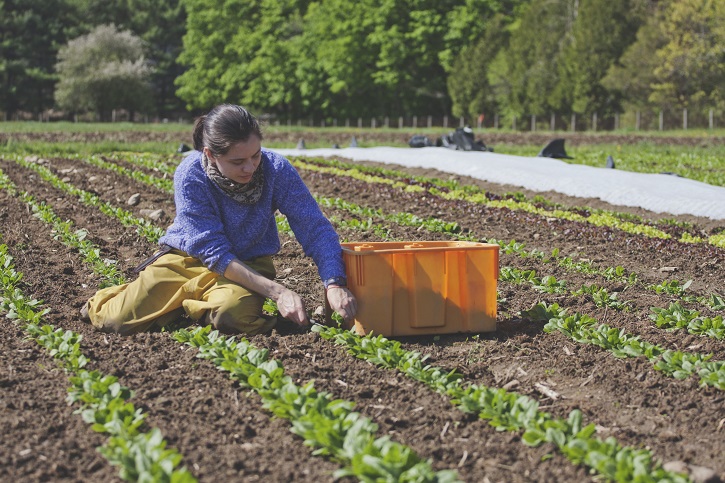

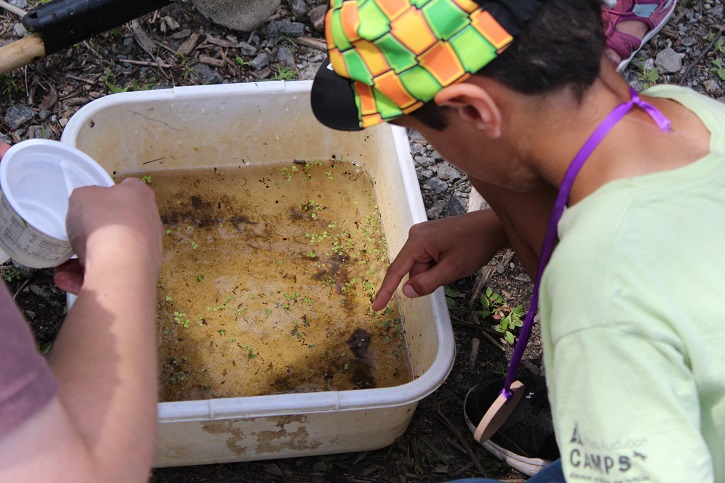
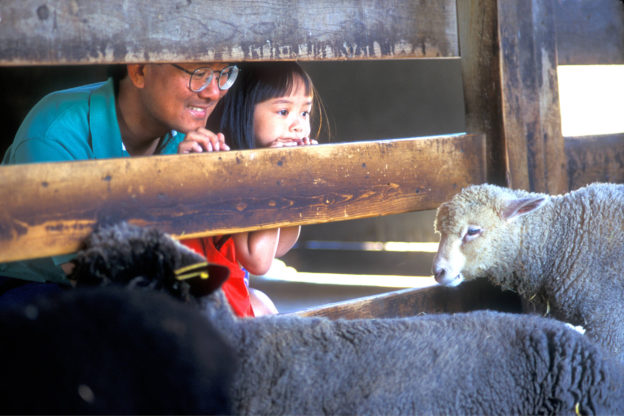
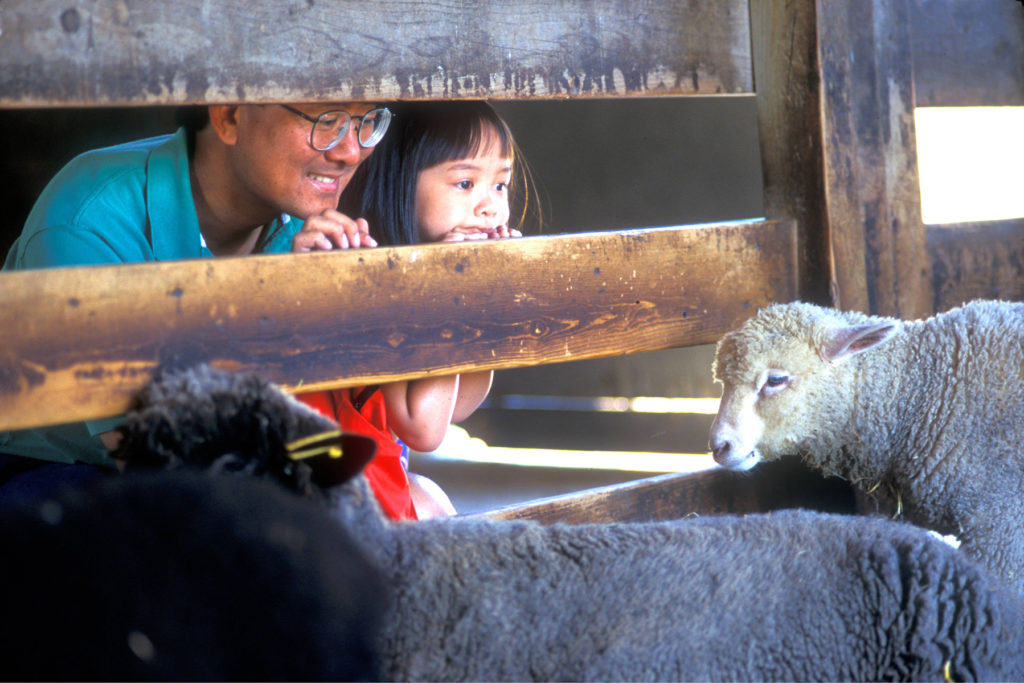

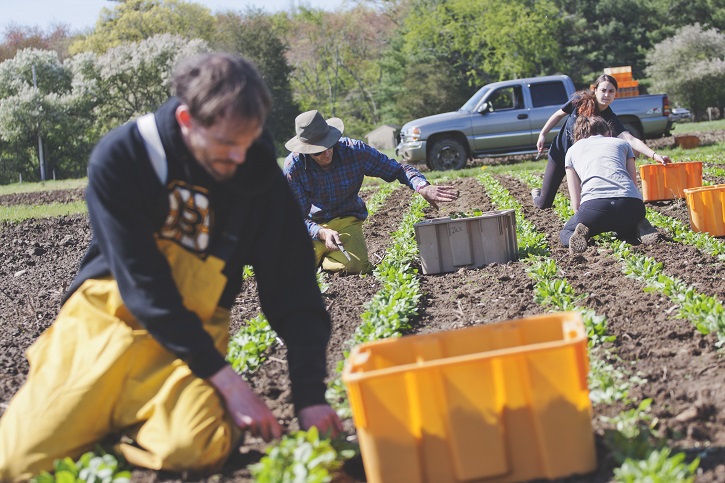


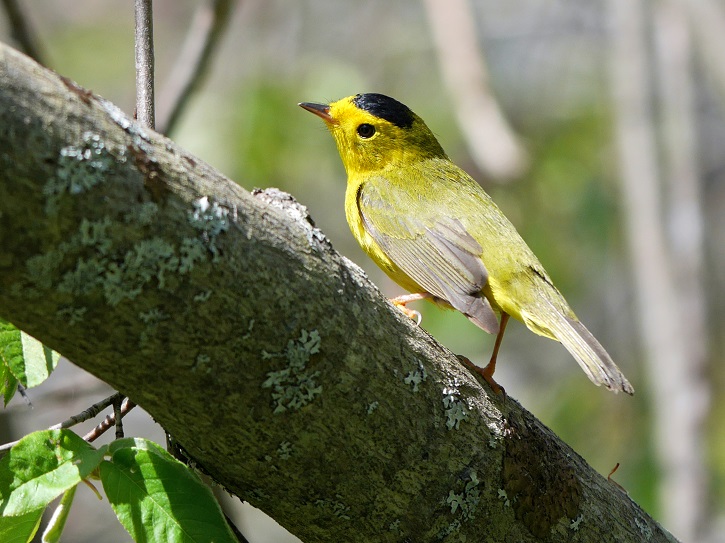
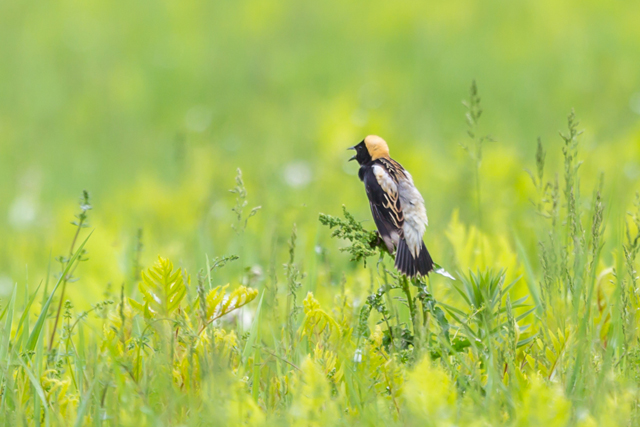
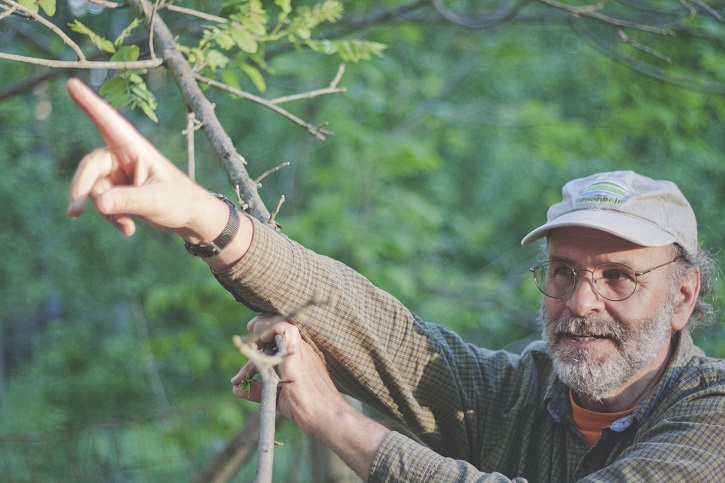
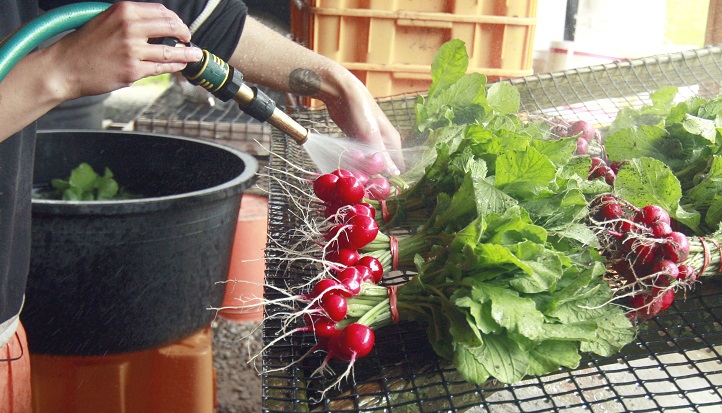
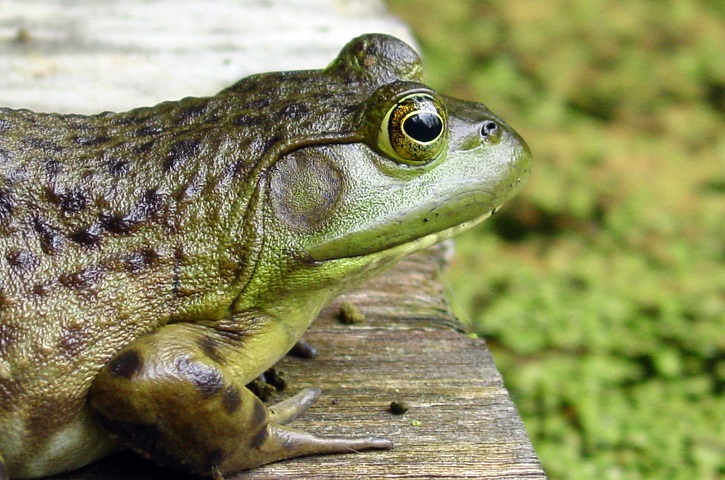
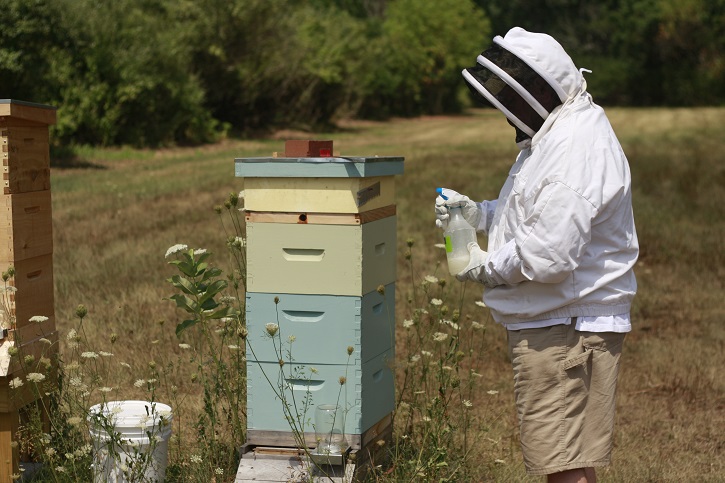
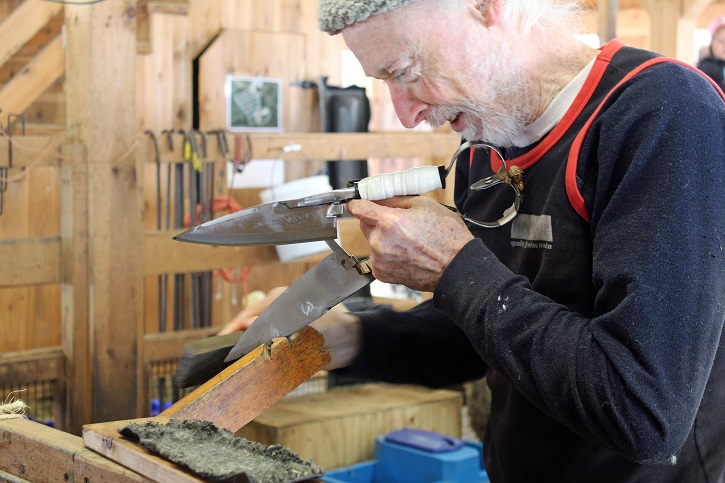


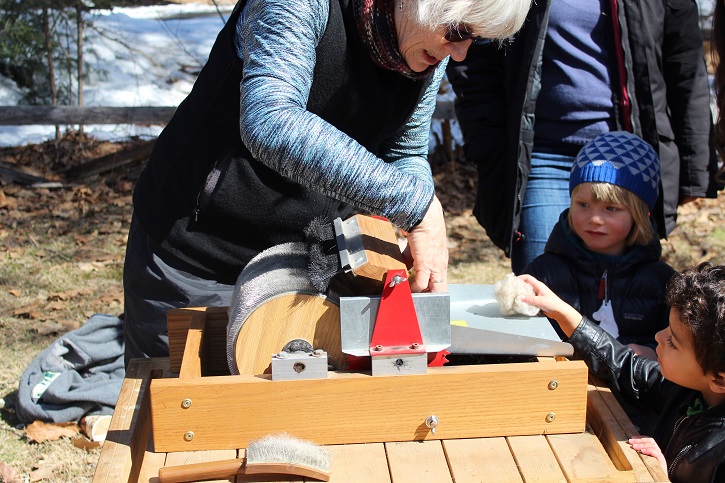


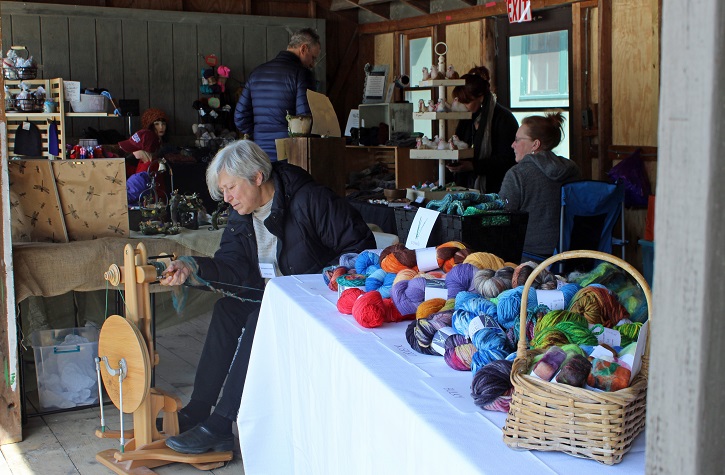
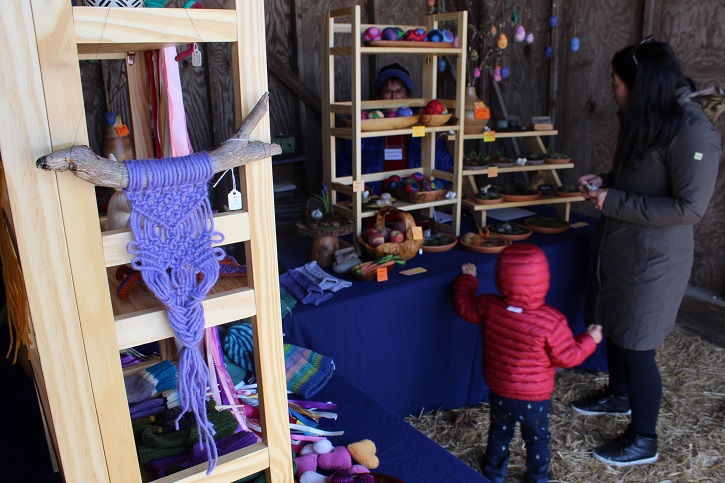
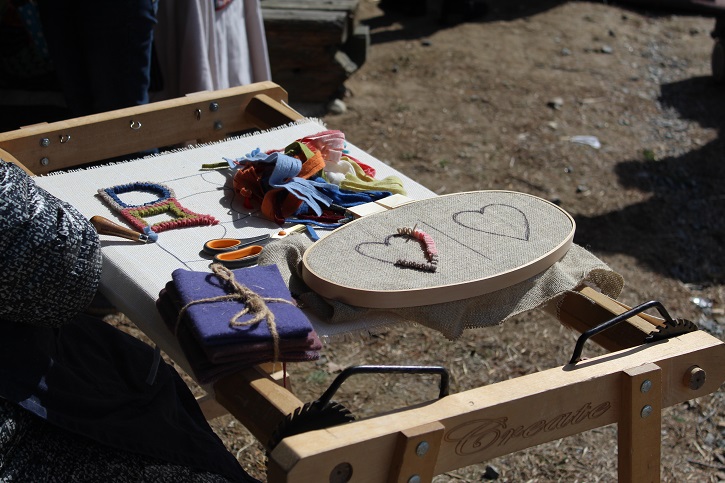
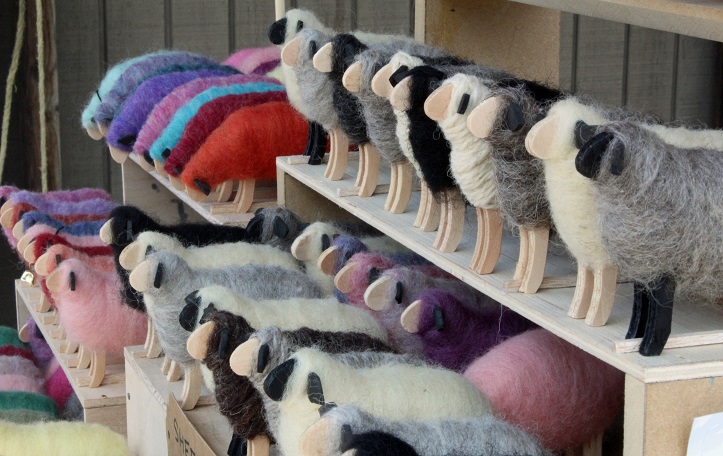 Thank you to all of our volunteers, vendors, and sponsors Iggy’s Bread, Whole Foods Sudbury, Black Earth Compost, and Verrill Farm, for their help in creating another fun filled day! See you at Woolapalooza 2019!
Thank you to all of our volunteers, vendors, and sponsors Iggy’s Bread, Whole Foods Sudbury, Black Earth Compost, and Verrill Farm, for their help in creating another fun filled day! See you at Woolapalooza 2019!